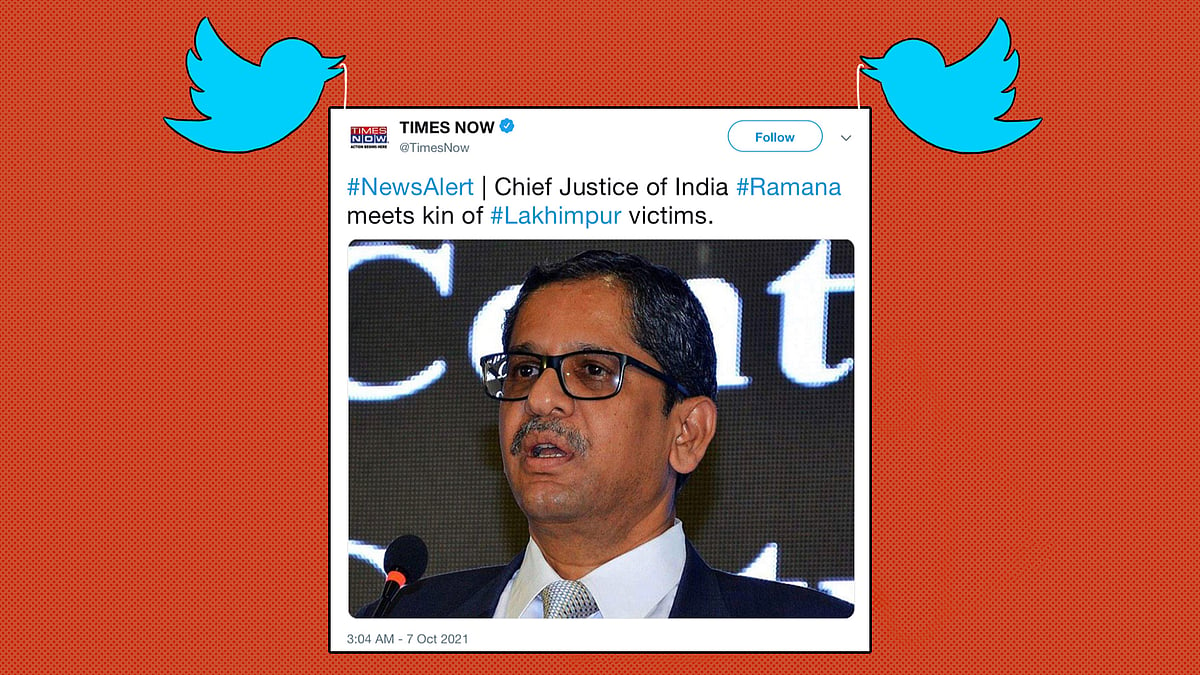CJI Ramana’s Supreme Court inherited crucial cases. How has it dealt with them?
The court under the outgoing chief justice has made little, if any, progress on weighty constitutional matters like Article 370, citizenship law and electoral bonds.
Praising retired Supreme Court judge RV Raveendran at the launch of his book in June 2021, Chief Justice of India NV Ramana said the best judge was the one who was less known and seen in the media.
Then, Ramana had been the chief justice for barely a couple of months. Now, as he prepares to leave office next week, there has been criticism that his widely reported public statements – on the judicial system, the state of India’s media and its political parties – have not been backed with judicial action.
In November last year, over a hundred people submitted a memorandum to the CJI, urging a speedy dispensation of justice in “several urgent matters affecting people’s fundamental rights”. They were concerned that the Supreme Court had seemingly left in cold storage such critical matters as Article 370, UAPA, CAA, and electoral bonds. Last week, Ramana acknowledged the growing pendency in the court and attributed it to the Covid pandemic and the resultant lockdowns.
In any case, Ramana’s Supreme Court has made little, if any, progress in disposing of important constitutional cases. The apex court’s website shows 71,411 pending cases, of which 483 – 53 main and 493 connected to them – are constitution matters. For comparison, on May 1, 2021, a week after the CJI took over, the Supreme Court had 67,898 pending matters. Of those, 48 were main constitution bench matters and 396 connected.
Article 145(3) of the constitution lays down that matters “involving a substantial question of law as to the interpretation of the constitution” are to be decided by a minimum of five judges. Constituting such benches and assigning cases to them is the job of the CJI, the ‘first among equals’ among the Supreme Court’s judges.
Since Ramana took over as the CJI on April 24, 2021 the Supreme Court has delivered a solitary constitution bench judgement, the ruling on the Maratha reservation case last year. The CJI was not on that bench. In September 2021, he set up a constitution bench to settle the dispute over Adani Power’s termination of its power purchase agreement with Gujarat Urja Vikas Ltd but it was dissolved four months later after the two parties agreed on an out-of-court settlement.
In May, a bench led by the CJI referred the matter of whether Delhi’s state bureaucracy should be controlled by the Delhi government or the central government to a five-judge constitution bench – much to the Narendra Modi government’s relief which had argued for the same. The matter is unlikely to be heard anytime soon.
Here are some of the prominent cases Ramana’s court inherited and how they have been dealt with so far:
Abrogation of Article 370
There are at least 23 petitions in the Supreme Court challenging the abrogation of Article 370 of the Indian constitution, which gave the erstwhile state of Jammu and Kashmir a small measure of autonomy, as well as the subsequent bifurcation of the erstwhile state into union territories.
A five-judge constitution bench led by Ramana has been hearing these petitions but has still not decided whether it is a constitutional matter or not, nor has it shown any urgency to dispose of it. In April this year, when senior advocate Shekhar Naphade told the court the matter needed to be heard urgently in view of the delimitation exercise being carried out in Jammu and Kashmir, the CJI said he would reconstitute a 5-judge bench to hear the pleas after summer vacations. That hasn’t happened.
Review of Sabarimala ruling
In 2018, the Supreme Court held that the exclusion of women of menstrual age from Kerala’s Sabarimala temple was not an essential practice of Hindu religion and, thus, lifted the ban on their entry. The case triggered questions of equal right to worship for women and over 50 petitions to the top court seeking a review of the 2018 ruling. The matter has been dormant since February 2020.
Citizenship Amendment Act
In January 2020, the Supreme Court said petitions it had received challenging the constitutional validity of the Citizenship Amendment Act were uppermost on every person’s mind, but did not stay a government notification implementing the new law. Most of the petitions argued that Article 14 of the constitution guaranteed everybody equality before law and prohibited the parliament from enacting laws that arbitrarily or irrationally differentiate between groups of people, as the new law did by specifically excluding Muslims.
The matter has not been heard since June 2021, although the court has received over 140 petitions regarding it.
Demonetisation
Five chief justices have come and gone since Narendra Modi invalidated the bulk of India’s currency notes in November 2016 and the Supreme Court received a slew of petitions challenging the move. A three-judge bench formed to hear the pleas declined to grant interim relief by staying demonetisation. But it framed nine questions which it said would be settled by a constitution bench. More than five years later, with the sixth about to complete his term, the constitutional bench is still to be formed.
Electoral Bonds scheme
The pleas challenging the electoral bonds scheme – which legalised anonymous and unlimited donations to political parties – is pending since 2017, when the Supreme Court refused to stay the sale of the bonds but said it would conduct an in-depth hearing on the petitions as both the central government and the election commission had raised “weighty issues” with “tremendous bearing on the sanctity of the electoral process in the country”.
Several elections have been held since then, funded substantially through electoral bonds. Four months ago, the court finally agreed to take up the matter for hearing. At the time, the CJI said he would have heard the case earlier if not for the pandemic. There’s been no news about it since.
 Media running kangaroo courts, says Chief Justice NV Ramana
Media running kangaroo courts, says Chief Justice NV Ramana
 ‘What is this nonsense?’: Supreme Court on misinformation by Times Now in Lakhimpur Kheri case
‘What is this nonsense?’: Supreme Court on misinformation by Times Now in Lakhimpur Kheri case
NL Events
Newslaundry Events: From The Media Rumble to NL Chats and webinars, updates and details on latest Newslaundry events.
